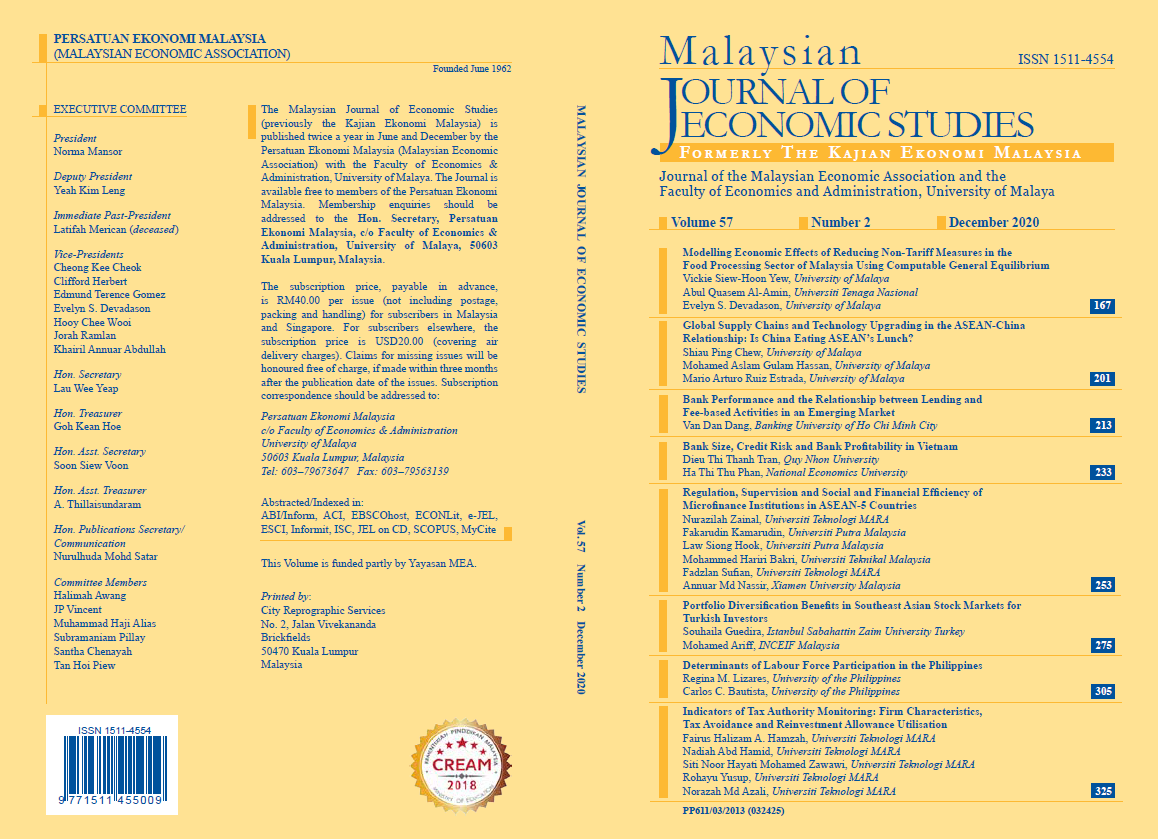Regulation, Supervision and Social and Financial Efficiency of Microfinance Institutions in ASEAN-5 Countries
DOI:
https://doi.org/10.22452/MJES.vol57no2.5Keywords:
Financial efficiency, microfinance institutions, regulation, social efficiency, supervisionAbstract
This study delivers new empirical evidence on the impact of banking regulations on the levels of social and financial efficiency of microfinance institutions (MFIs) between the years 2012 to 2018. The sample consisted of data from 172 MFIs from ASEAN-5 countries. As the first stage of the analysis, data envelopment analysis (DEA) was employed to determine a score of the level of social and financial efficiency for the sampled MFIs. Meanwhile, panel regression analysis and the Generalized Method of Moments (GMM) estimator were used to examine the impact of banking regulations on the level of social and financial efficiency of the sampled MFIs. The findings showed that the sampled MFIs achieved a lower level of social efficiency while attaining a higher level of financial efficiency. The lower level of social efficiency indicated that the sampled MFIs had lost their focus on poverty reduction, while at the same time, switching their focus toward financial sustainability. The empirical findings also showed a significant impact of bank regulation and bank supervision on the levels of social and financial efficiency. Overall, bank regulation negatively influenced the level of social efficiency and bank supervision impacted the level of financial efficiency of the sampled MFIs positively. The findings from this study provide new insights for bank regulators and policymakers to construct regulatory frameworks that are relevant to the operation of MFIs.

